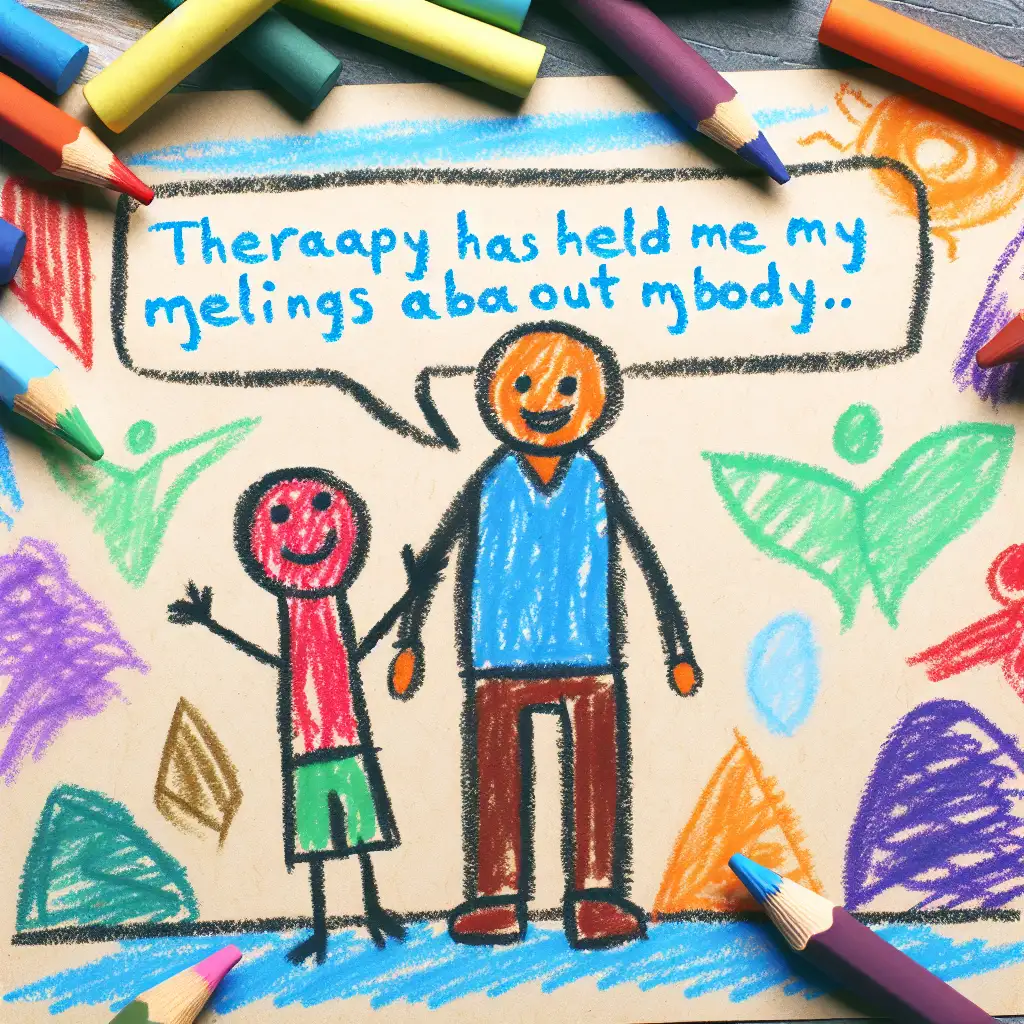Tom Grennan says therapy helps with his body dysmorphia

Explain Like I'm 5
Imagine your mind has a little trickster inside that sometimes makes you see yourself differently than you really are. This can make you feel sad or worried about how you look. Tom Grennan, a singer, has something like this called body dysmorphia. It's like when you look in one of those funny mirrors at a carnival that makes your body look all wobbly and weird. Tom said talking to a special friend, called a therapist, helps him feel better about how he sees himself. He also mentioned that eating a lot sometimes and working out a lot can make him feel upset, but therapy is like having a superhero sidekick who helps him fight the trickster in his mind.
Explain Like I'm 10
Tom Grennan, a singer, shared his struggles with something called body dysmorphia. This means even though he might look just fine to others, when he looks in the mirror, he doesn't see what everyone else sees. His mind tricks him into worrying too much about his appearance, which can make him really sad or anxious. Tom also talked about how sometimes he eats a lot more food than usual or exercises too much, which can also make him feel not so great.
To help with these feelings, he goes to therapy. Think of therapy like talking to a wise guide who helps you navigate through confusing forests in your mind. It's not always about being sick; sometimes, it's about understanding and managing your feelings better. Therapy is helping Tom feel happier and more comfortable with himself, which is super important because everyone should feel good about who they are!
Explain Like I'm 15
Tom Grennan, a popular singer, recently opened up about his personal challenges with body dysmorphia. Body dysmorphia is a mental health condition where a person spends a lot of time worrying about flaws in their appearance. These flaws are often unnoticeable to others. Tom explained how his struggle isn't just about low moments looking in the mirror; it also involves his eating habits and exercise routines, which can sometimes be more harmful than healthy.
He's turned to therapy to cope with these issues. Therapy, in this context, serves as a crucial support system, helping him navigate the complexities of his thoughts and feelings associated with body image. It's like having a professional in your corner who helps refine your perspective and develop healthier habits and thoughts.
Tom's openness about his mental health is significant amid the broader entertainment industry and societal pressures on appearance and perfection. His story sheds light on the pressures many people face and the importance of mental health support systems. It highlights a move towards more openness about mental health, especially in industries often criticized for their role in perpetuating unrealistic body standards. His journey might encourage others to seek help and prioritize their mental wellness, changing how we think about health, beauty, and strength.
Want to read the original story?
View Original Source